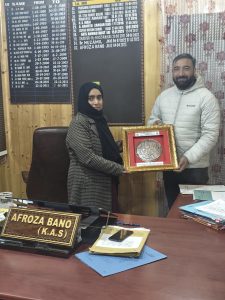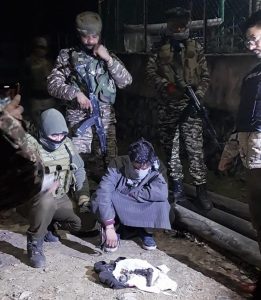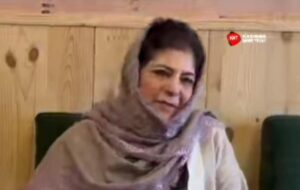DSEK asks Pvt schools to abstain for subjecting children, their parents to admission tests, interviews

DSEK asks Pvt schools to abstain for subjecting children, their parents to admission tests, interviews
KNO Correspondent
Srinagar, Feb 23 (KNO): The School Education Department Friday warns private schools for subjecting the children and their parents to admission tests and interviews for admission purposes.
Besides, the department also said that it will take strict actions against the private schools for charging capitation fee by or for conducting Interviews and screening at the time of admission.
According to the news agency—Kashmir News Observer (KNO), Director of School Education Kashmir (DSEK) in a circular said it has noticed that some recognized private schools charge capitation fee at the time of admission and subject the students and their parents or guardians to screening test.
Referring to the Section 13 of Right to Education Act 2009, DSEK clarifies that ‘No school or person shall, while admitting a child, collect any capitation fee and subject the child or his or her parents or guardian to any screening procedure’.
It also said that in accordance to the Section 13 of the act, ‘any school or person, if in contravention of the provisions of sub-section(1) receives capitation fee shall be punishable with fine which may extend to ten times the capitation fee charged or subjects a child to screening procedure, shall be punishable with fine which may extend to twenty-five thousand rupees for the first contravention and fifty thousand rupees for each subsequent contravention.’
Capitation fee means any kind of donation, admission fee or contribution or payment other than the fee notified by the school.
DSEK said that the objective of the provisions of section 13(1) read with section 2(o) is to ensure that schools adopt an admission procedure that is non- discriminatory, rational and transparent.
“Schools should not subject children and their parents to admission tests and interviews to decide whether they will admit a child or not,” reads the circular.
The directorate said that tests and other screening procedures can only reveal differences in nurturing, rather than any intrinsic differences of the potential to learn. “In such a situation it is the obligation of the State and society to provide for better nurturing through good schools for children’s from poor and disadvantaged sections of society.”
It also said that the availability of equal opportunities for children belonging to different social and economic backgrounds will reinforce the idea of equality enshrined in the Constitution and ensure that children are not discriminated on the basis of their social and economic background.
DSEK further said that the guidelines also emphasis the importance of moving towards composite classrooms with children from diverse backgrounds, rather than homogenous and exclusivist schools: heterogeneity and diversity in classrooms lead to greater inter-learning, respect for differences, tolerance and creativity.
It added that various complaints from parents and civil society were pouring in regarding the demand of admission fee by private schools which is totally against the law of the land and a punishable offense.
“Due to change in the academic session in J&K UT in conformity with the academic calendar of the entire nation as per NEP-2020, the admission time in schools should begin in the month of March and many schools are flouting this norm as well,” reads the circular.
DSEK accordingly impressed upon all the private recognized schools of Kashmir division to desist from charging the capitation fee (admission fee) and other non-notified fee and avoid conducting screening procedures or interviews of children for admission.
“In case of deviance from any school in this matter, action under rules shall be initiated to the extent of cancellation of registration of the school,” it reads.
The director in this regard appointed all Chief Education Officers as nodal officers in their respective jurisdiction to ensure implementation of these circular instructions in letter and spirit.
“All Joint Directors, Cluster Heads and Zonal Education Officers shall monitor the implementation of these circular instructions in their respective jurisdictions as well,” DSEK said—(KNO)






